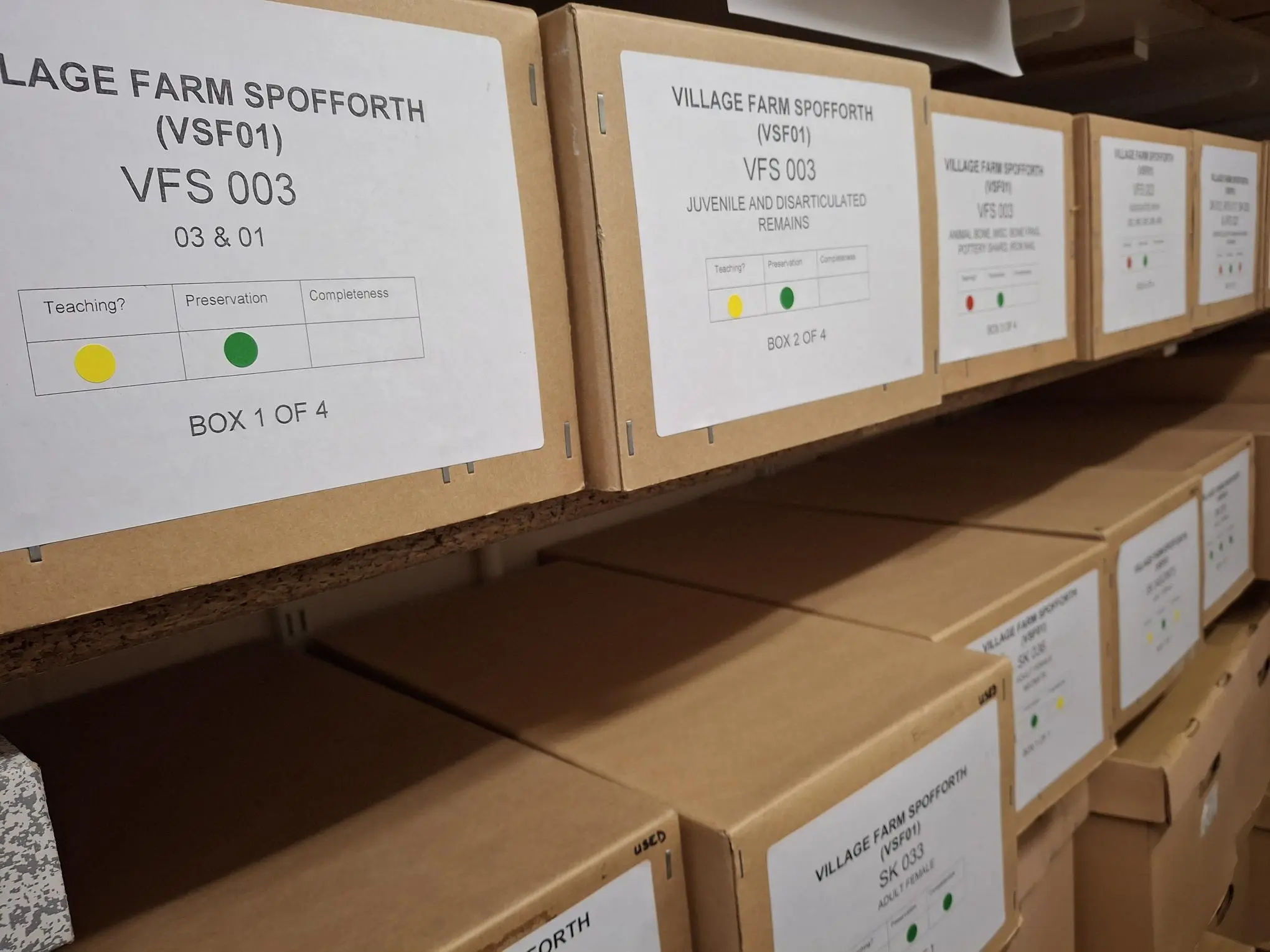Archaeology student Ryver gained valuable hands-on experience cataloguing human remains during a 10-week internship at Spofforth Village Farm.
"Over the summer I did an archaeology internship cataloguing the human skeletal remains from Spofforth Village Farm under the supervision of Professor Anna Williams.
This Anglo-Saxon cemetery dates to roughly between the mid 7-9th century, the period often associated with England’s conversion to Christianity. The site was excavated in 2001 and yielded approximately 250 individuals from 117 grave cuts.
My job has included organising parts of the University’s human remains collection, filling out skeletal recording forms, photographing individual elements and complete skeletons where appropriate, and creating an inventory to record the bones and individuals in the collection.
From neonate babies to middle aged people, the skeletons I looked at encompassed a wide demographic of people. I observed a number of different standard pathologies like dental calculus and osteoarthritis; as well as several unique and potentially disabling skeletal changes such as sacralisation of the L-5 in one individual, fusion of three thoracic vertebrae in another, and a healed humerus fracture in a third.
Many of the individuals I got the chance to catalogue also had congenital disorders such as dolichocephaly (an elongated skull length to width) and two had brachycephaly (a shortened skull length to width ratio), these disorders are often associated with developmental disabilities.
These findings, alongside the number of healthy skeletons I observed, demonstrate that this cemetery was home to a wide variety of individuals with a range of different needs and roles within the community.
"This experience has been very fulfilling and enjoyable for me as a recent graduate, as I have been able to build on the skills I have developed throughout my undergraduate degree."
"Through this experience, I have gained practical hands-on experience. The opportunity to work with human remains on a more long term and repeated basis has allowed me to enhance my basic knowledge of the different skeletal elements to now be able to identify specific identifying features, pathologies and traits across a myriad of different situations and scenarios.
This has resulted in me being able to recognise bones from only small fragments and clearly detail what they are for the catalogue, which is a skill that would have been impossible to develop so quickly after finishing my final year as an undergraduate without this internship.
Furthermore, I now have a much better understanding of the post excavation archaeological processes and lab work; building on my existing experience, which was previously limited to the teaching environment, where the amount of time we had to practice osteological methods was far less than what I have had during the course of this internship.
In addition to this, the opportunity to work independently outside of a prescribed teaching environment has allowed me to develop both my autonomy and my confidence, in both my work and my personal skillset. As a result of this internship, I now feel much more prepared to go on to my Masters in Osteoarchaeology, and further, my future career.
I am thankful for this opportunity and all of the skills I have developed over the course of this 10-week internship and look forward to developing these skills further over the course of my postgraduate education."
